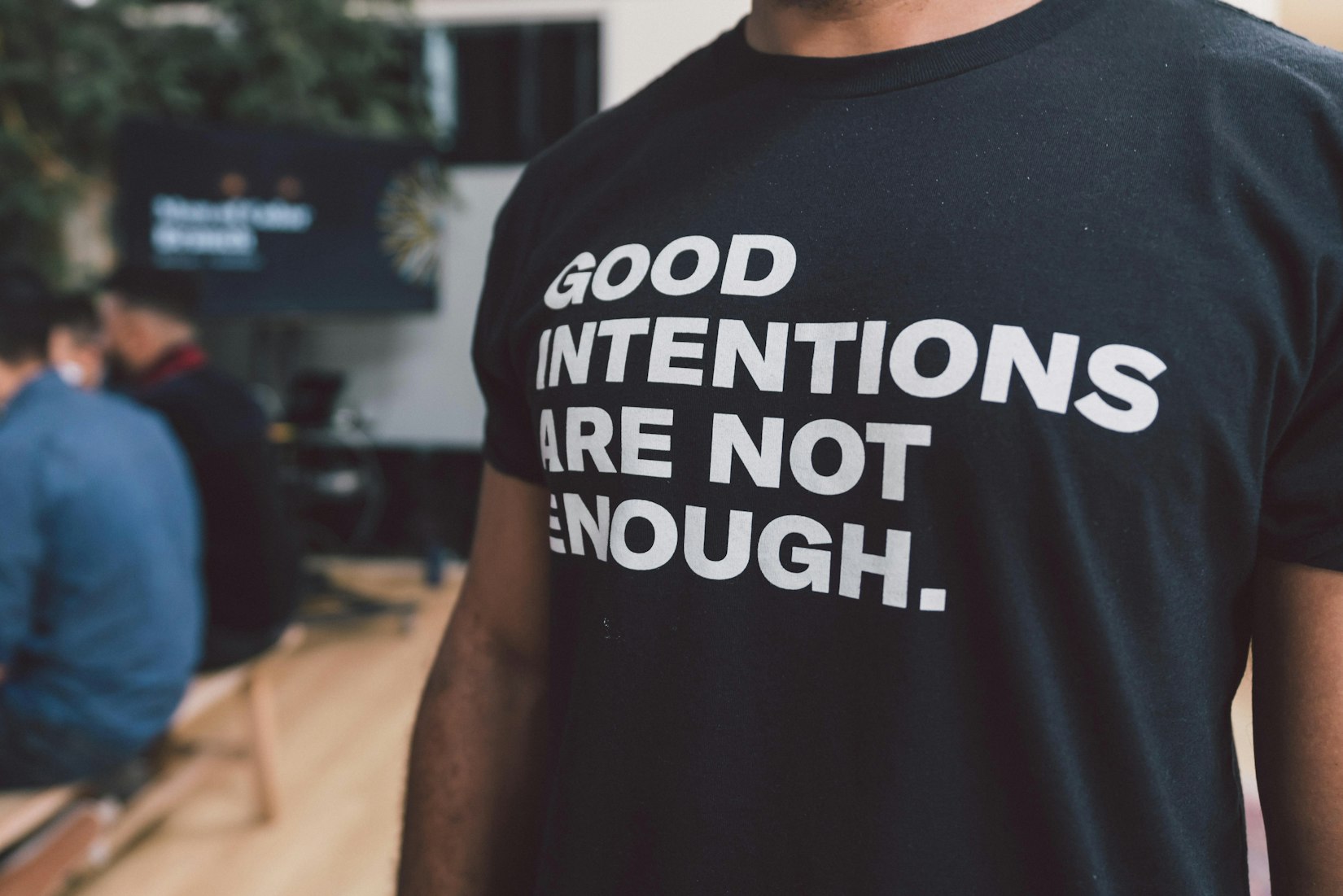Why we discuss 'ally skills' in open science

By Yo Yehudi (Wellcome Trust), Malvika Sharan (The Alan Turing Institute) and Emmy Tsang (TU Delft).
Originally written for the Software Sustainabilty Institute.
Open science is about sharing and collaborating with others, and meaningful collaborations require careful thinking about pathways and potential barriers to participation. If your suggestions to a project get continuously ignored, or if key decisions are made in conversations that you have no access to, chances are you will stop contributing to that project. For science to be truly open, we should learn to recognise inequities in science and act to change that.
In many teams, including in science, research, and software development, we often fail to achieve meaningful diversity and equitable processes. This may be spurred on by legacies of earlier times, but ultimately results in teams where marginalised people are at disadvantage compared to others. Furthermore, when issues crop up, often they have to bear the burden of educating and correcting others. To take this particular burden off the shoulders of marginalised members, Open Life Science teaches ally skills in their programme, as well as offering this workshop for other researchers (recent workshop post).
Open Life Science is a training and mentoring programme that helps integrate open principles in research projects. The training curriculum features “ally skills” (in week 9) that starts with this quote by Akaya Windwood:
“Part of my responsibility as a community leader is to understand that my wellbeing is inextricably connected to your wellbeing. I want you to be well so we are well.”
Applying our ally skills means using our privileges or power (when we have it) to stand up for others in our community and actively work to dismantle unfair systems. Members of marginalised groups disproportionately get affected by systemic power imbalances. Yet, when they stand up for themselves, they are often deemed to be causing trouble. A recent example includes AI ethicist Timnit Gebru’s dismissal from Google after she wrote a paper that Google felt wasn’t sufficiently positive about ethical pitfalls in their algorithms. Meanwhile, if someone with privilege stands up for someone marginalised, they’re likely to be deemed virtuous.
It is important to support researchers in embedding ethical values in open science projects (and in research more widely) and discuss societal impacts of their work. The Open Life Science programme facilitates this discussion through ally skills workshops where we can explore our privileges as well as harms in different scenarios. Learning about ally skills can also help us understand that privilege granted by society to a group does not mean that an individual of that group does not experience hardship. One can have power and privilege in one situation but may experience marginalisation in other situations. As Esther Plomp and Lena Karvovskaya, who attended one of our workshops, wrote in this post:
The amount of power or privilege that you have may change depending on your current situation. For example, if you work abroad for a couple of years you may not speak the primary language there, but once you are back home you are in a privileged situation where you speak the preferred language.
Getting Started
Becoming comfortable and open to acknowledging, critiquing, and accepting your own privilege is not easy. As Kathleen Ebbitt writes in her post:
To create change, it’s important to frame the discussion on privilege with actions. As such, the conversation should be “How can we work to make sure that we are understanding and undermining the system of oppression and privilege that hurts all of us?”
We recommend using this worksheet to identify your privileges (it takes about 5 minutes to complete). You can read posts on dearally.com to learn about what ally skills are and how it is different from an ‘ally’ (also see Why I Don’t Call Myself An ‘Ally’).
In addition to self-education, follow these simple guidelines:
- Ally skills are about taking action it isn’t a badge you wear or a special status you give yourself.
- Prepare simple responses for situations where you can step up for others (“Hey, that’s not ok!” is a good response too).
- Learn about the existing power structure before you act because “privilege is invisible to those who have it”.
- Don’t put one group down while you’re trying to support other groups.
- Practise, practise, practise - Think through what you might say in common scenarios, and even act it out with others in safe groups if you can.
Learning more
Authors are Open Life Science team members, who are trained ally skills trainers and have designed their workshops based on the Frameshift Consulting resources targeted towards academics and researchers. This blog touches lightly on topics that they cover during an Ally Skills workshop. For a deeper understanding, you can sign up for a workshop or invite a trainer to run one in your institution. You are also encouraged to apply to join the Open Life Science’s next cohort.
Join the next cohort
The application call for the fourth cohort of Open Life Science is currently open (deadline is 15 July) - find more information on the website: https://openlifesci.org/.
Cover image by Edgar Chaparro on Unsplash